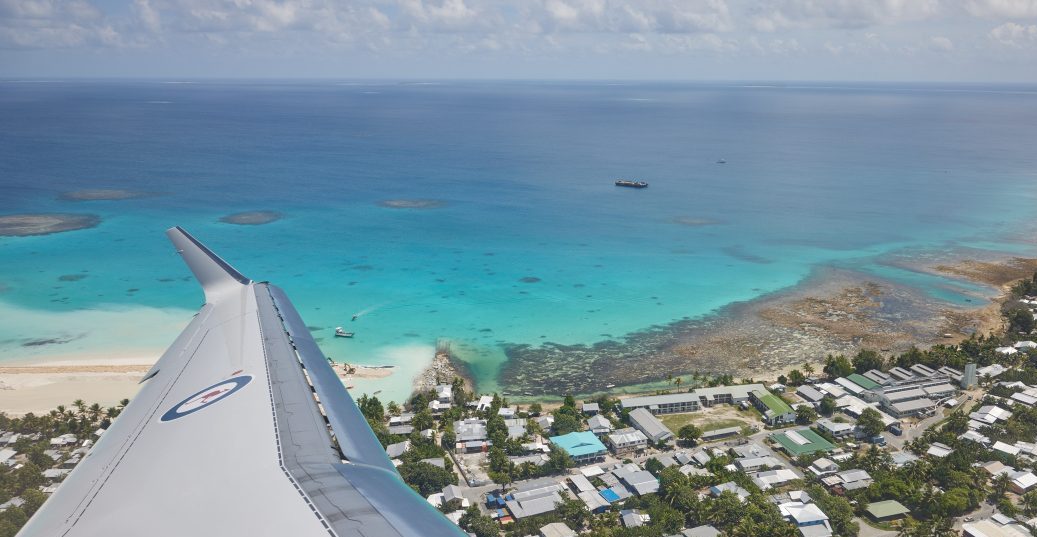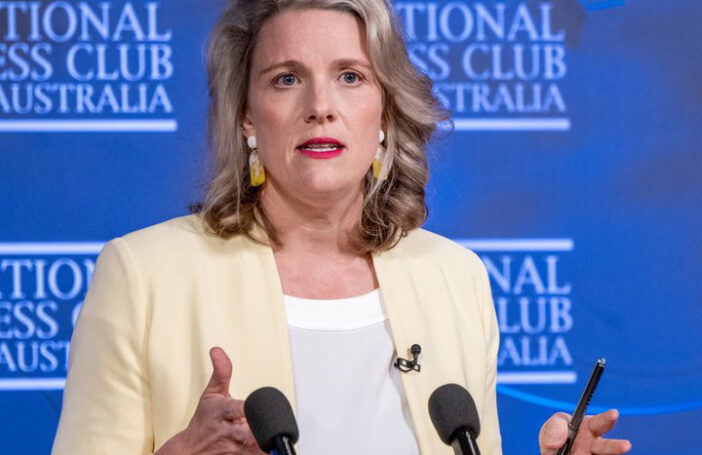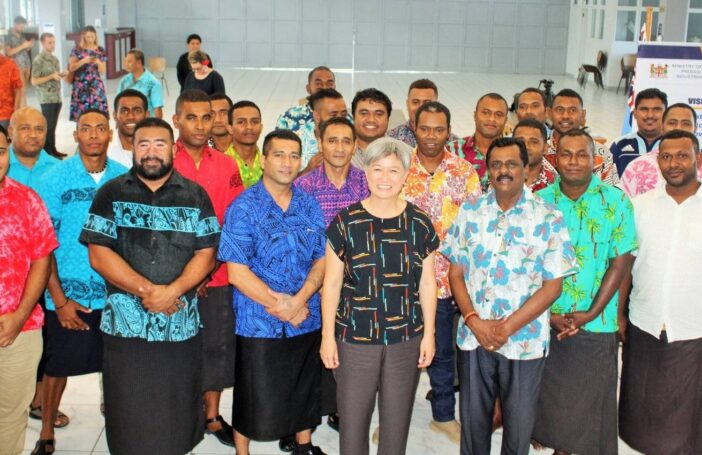If you want a reminder just how far Australian Pacific migration policy has come, read the 2006 Pacific Economic Bulletin article by veteran journalist and commentator Graeme Dobell, “Australia confronts its Pacific taboo: labour mobility”. Dobell began by saying that “Labour mobility is the taboo subject Australia has banned from the regional agenda for 40 years.” But, he continued, “The subject is now on the table and in play as a policy issue.” And in play it certainly has been, ever since, with changes coming increasingly thick and fast.
Far from being taboo, now, according to the 2023 Australian migration strategy, “supporting Pacific migration to Australia is an essential part of the Government’s plan to deepen connections with the Pacific.”
And it’s not just Australia. We’ve seen far-reaching developments on migration in New Zealand and in the Pacific region as well. And there’ll be a lot more this year. Here are seven changes to look out for.
First, after Labor won a difficult legislative battle last year to create a Pacific window into Australia’s permanent migration regime, the Pacific Engagement Visa (PEV) will commence in 2024. The next step in the PEV will be the announcement of country quotas: how many of the 13 eligible countries will opt in, and how many of the 3,000 visas in total each country will get? This all needs to be announced soon to enable the first PEV lottery to take place in the 2023-24 fiscal year.
Then we need to see how many people apply in each country. New Zealand’s experience shows that the new visa will become very popular over time, but a massive public relations exercise will be needed to boost numbers in the early years to ensure that it is not only the elite who apply.
Second, the eagerly awaited family accompaniment pilot for long-term temporary Pacific (PALM) workers in Australia has commenced, with applications open now. The families of 200 eligible workers from Kiribati and Timor-Leste will be selected, with the first families expected to arrive in Australia in mid-May. Employers will also have to apply, and meet a range of eligibility criteria.
Third, PALM worker numbers should be closely watched this year. Last year Australia significantly tightened PALM regulations, with the requirement to offer 30 hours of work every week to all PALM workers to come into force on 1 July. Now that backpackers are back in record numbers, many expect that PALM worker numbers, after several years of rapid growth, will fall. If they do, expect the Federal Coalition and farmer groups to put the invidious “Asian ag visa” back on the political agenda.
Fourth, elections have just been held in Tuvalu. The new, and extensively changed, Tuvalu Parliament will determine the future of Tuvalu’s new migration-security agreement with Australia. All of Australia’s other migration reforms have been unilateral: the Falepili Union is the first to attempt to extract concessions (in this case security-related) in return for migration preferences. Whether this approach will be extended to other countries depends in the first instance on whether it gets off the ground in Tuvalu.
Fifth, Tonga and Samoa have announced the outcomes of their labour mobility reviews, and we can expect Vanuatu to follow suit in 2024. A number of sending countries have expressed concern about brain drain but, consistent with the immense popularity of these schemes across the Pacific, none is yet to reduce its level of participation in either Australia’s or New Zealand’s temporary labour mobility schemes.
Sixth, it could also be a big year for labour mobility in New Zealand with the incoming government promising to double the cap on workers under its seasonal worker scheme (the Recognised Seasonal Employer scheme or RSE) over five years to 38,000. Will this happen? Will it mean opening up the RSE more to Asian workers? And will the RSE policy review recommendations, developed under the previous government, simply be sidelined? The new government has already announced it won’t be implementing Labour’s promise of an amnesty for long-term overstayers in New Zealand to ‘make good on the dawn raids apology’.
We’ve kept the biggest thing to look out for in 2024 to last, and that is the progress made by the growing calls for a visa-free Pacific. Leaders from Samoa, Fiji and Solomon Islands have all come out in favour of this radical approach to Pacific integration. Their calls have so far been resisted by Australia and New Zealand but, as the last twenty years show, what was once taboo can quickly become mainstream. The key test for those advocating for a visa-free Pacific will be whether this idea gets onto the agenda of key Pacific meetings this year, such as the Forum Economic Ministers Meeting, and the Leaders Meeting (in August in Tonga).
Note: Last year we provided regular updates on the PEV. Since our most recent update in October (after the main PEV legislation was passed), additional legislation – the Social Services and Other Legislation Amendment (Australia’s Engagement in the Pacific) Act – successfully passed through the Australian parliament (in November). This is good news for PEV migrants who won’t have to wait like most other new migrants do to access various social security benefits and student loans. The new legislation also gives additional benefits to PALM worker families.






Very interesting reflections, Stephen and Evie. Visa-waiver for visitors from the Pacific was an outcome of the 1986 Immigration Policy Review in New Zealand. Provisions were implemented very quickly for citizens of Samoa, Tonga, Fiji, Kiribati and Tuvalu late in 1986 and withdrawn for citizens of the first three countries after the first Fiji military coups in March 1987. Citizens of Kiribati and Tuvalu retained visa-waiver status for visitors until 2003 when they lost this privilege and their existing temporary work schemes (also a product of the 1986 Policy Review) in a trade-off for the introduction of their current small PAC quotas. I’d be surprised if the Coalition Government gave serious consideration to re-introducing visa waiver status for visitors from these countries this year given the range of other challenging issues they have to deal with. But they do have some experience of visa-waiver for citizens of Pacific countries.
The changes that the National Party indicated they would like to make to the RSE are not part of the Coalition Government’s first 100 day agenda. As Charlotte noted in a blog on this matter late last year, the changes, if pursued, will take time to implement and are likely to involve further consultation with industry, ideally after the 2024 harvest and packing seasons are over around the middle of the year. We are currently seeking further information on this matter.
Thank you for your comment Richard, which provides a lot of helpful context on what to expect from New Zealand.
Thanks for the reply, Evie. We’ll keep you informed of developments relating to visa-waiver discussions. Our current Minister of Foreign Affairs is an active engager with the region and has recently been in Australia talking about matters of mutual interest.